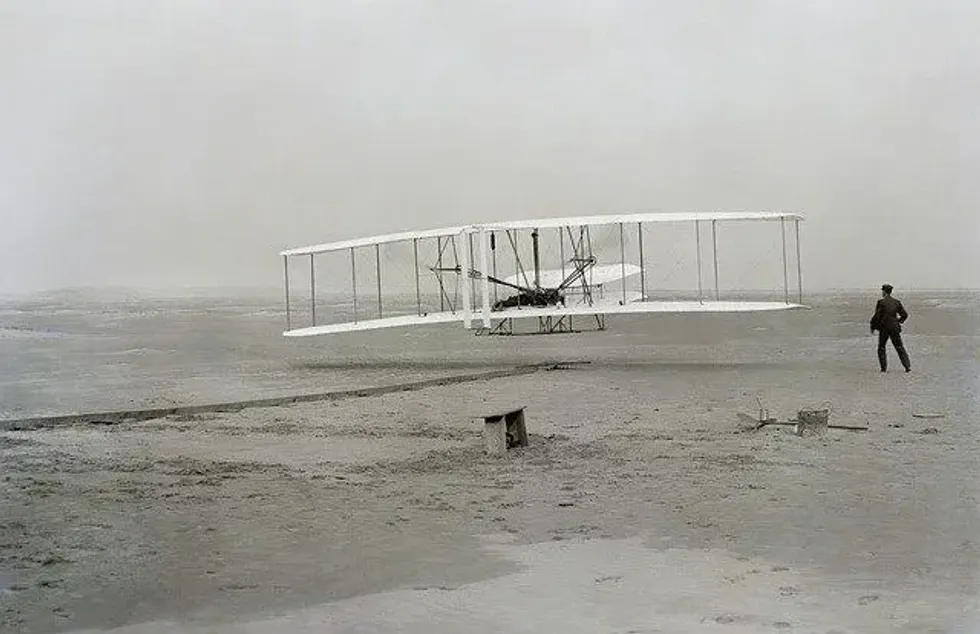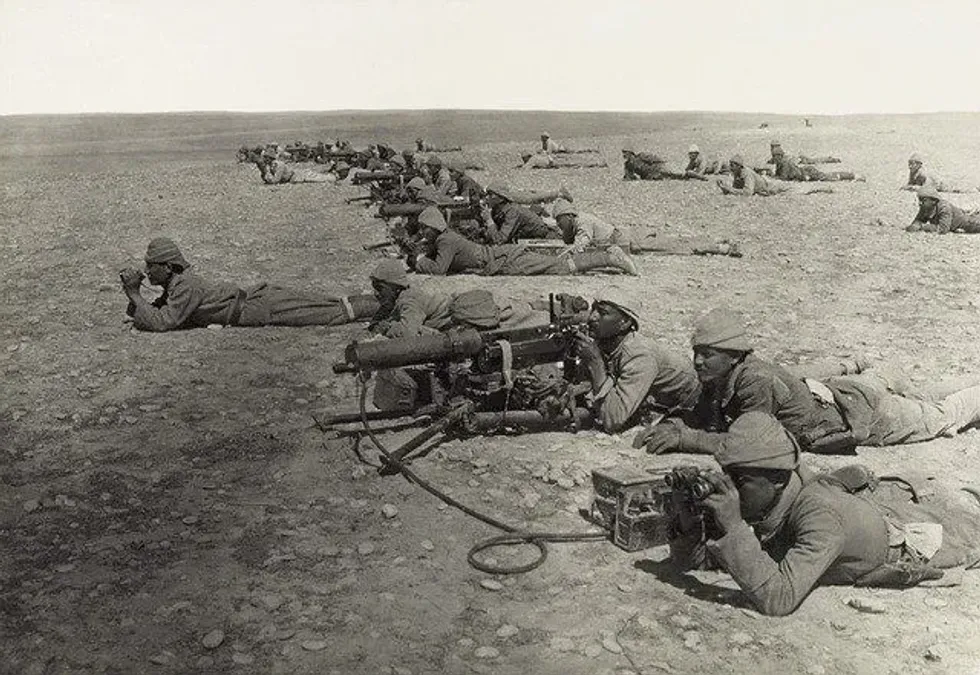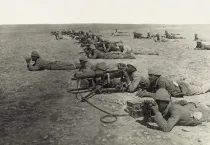51 Curious 20th Century Facts And Significant Events For Kids

The 2oth century plays a crucial role in world history with the two world wars, various inventions, scientific advancements, and relatively young industries gearing up.
The 20th century flipped the globe with amazing inventions like the Wright brothers' first flight and progressive growth. Also, they faced war, tragedies, surprises, and scandals. The major happenings of the 2oth century are briefed below.
The history of the Great Depression started with the crash in the stock market in 1929. Economists lay a few more reasons like drought, bank failures, overproduction of goods, consumer debt, and stock speculation.
In 1933 Franklin D Roosevelt was elected as a new President who promised the people of America a better future and regulated new laws on banks, business, and the stock market, which helped people find work, home, food, and stability.
A civil right is the fundamental right of every citizen without any differences of religion, nationality, gender, color, disability, or age, which is protected by the constitution. A civil right is the right to speak and express their freedom of thought, freedom to follow their religion.
In history, there have been several civil rights movements fighting for people who have been discriminated against, e.g., the women's suffrage movement.
Rosa parks, a teacher who is also a civil rights leader, fought for the rights of black.
Rosa park grew up watching racism and wanted to make a change, which made her stand by shredding away the differences. Rosa parks protested for the civil rights of people in the bus in 1955, also empowered the Montgomery bus boycott establishing equal rights for all.
Pluto is significant in size and has five moons. It was the ninth planet discovered in our solar system in 1930, but it was not recognized until the 1990s.
Pluto was announced as the Dwarf planet in 2006. The most powerful volcano eruption was also witnessed in this century at Novarupta in the Alaskan Peninsula. Expressionism and Neoclassicism made new trends in classical music.
Martin Luther King is an essential leader in American history. Martin Luther King is also an activist who became a spokesman and leader in the American civil rights movement.
Martin Luther King stood for civil rights adopting nonviolence and civil disobedience. Martin Luther King took part in the protest and led marches for blacks to establish their right to vote, labor rights, desegregation, and other basic civil rights.
Martin Luther King took the Montgomery bus boycott, Albany Movement, and many others. Martin Luther King gave his speech " I Have a Dream" at the Lincoln memorial.
Women Suffrage Movement: It's the movement that raised the right for women to vote. Until 1900, most democratic countries gave only men the right to vote, and women were not allowed to vote. Finally, the amendment was passed with this movement which allowed women to vote in 1920.
Space race: The race was between The United States and Russians after the Cold war. They tried to compete with their armed forces and space technology by recruiting top scientists.
Both the countries announced launching their satellites. Russia took the lead by their first successful satellite Sputnik launched to orbit on October 4, 1957.
After four months, Americans launched their satellite called Explorer. Russians again took the lead by sending the first man into space in the spacecraft Vostok, and Americans sent their first man to space in three months.
Finally, the Americans took a massive leap of success by sending the first man to the moon on July 20, 1969. Neil Armstrong along with fellow crew members landed on the planet moon.
If you enjoy reading this article, also read our articles on 20th-century music facts and 21st-century facts.
20th Century Start, And Years Included
The 20th century was distinct in history with many outstanding moments events like world war 1, world war ii, nuclear power, nuclear weapons, nationalization, the cold war, space exploration, scientific advancements, and lots of inventions.
World War I: The twentieth century began with the first world war between the Allied and Central powers. The Allied powers were Britain, Russia, and France.
The leading members of Central powers were Austria-Hungary, Germany, Bulgaria, and the Ottoman Empire. The united states joined the allies in 1914.
The significant fights happened in Europe in the long trenches from Belgium to Switzerland.
The root cause was the assassination of the archduke of Franz Ferdinand, so Austria took the war against Serbia, Russian wanted to defend its ally Serbia, so Germany took the war against Russia, so France took the war against Germany to protect its ally Russia, Germany seized Belgium to take over France.
So Britain announced war on Germany. The war finally ended by signing the Treaty of Versailles between Germany and the allies.
The history of the Cold war was a disruption between two superpowers, the Western world, led by the United States, and the communist countries of Eastern Europe led by the Soviet Union. These two superpowers never declared direct war on each other.
Instead, they fought indirectly through proxy wars.
Proxy wars were fought between different countries and supported by these two superpowers on each side, e.g., The Vietnam War, the Korean War, and the Soviet Afghanistan war.
These two superpowers also raced amongst themselves, displaying their armed forces and technology advancement like the best weapons, nuclear bombs, and space war by sending satellites to space and man landing on the moon. The Allies lost their trust in the Soviet Union, their leader as Stalin spreading communism, so the Cold War ended dissolving in 1991.
World War II: It was between the Axis powers Germany, Japan, and Italy and the Allies United States, France, Soviet Union, Britain and involved most of the world's nations. World war ii started in 1939. It was a deadly war killing over a million people.
The surprise attack at pearl harbor by Japan led to massive damages. France and Great Britain declared war on Germany after it invaded Poland. The war in the Pacific ended with Japan's surrender and in Europe ended with Germany's surrender in 1945.
The 2oth century had remarkable events which pulled a string in the world's political and revolutionary side with huge transformations. The 20th century began with the vast invention of the first flight by the Wright brothers and saw the first world war (1910) Russian revolution (1910), and the Panama Canal was built too (1910).
The world's most giant, the unsinkable ship, was built, hitting an iceberg and sinking in 1912.
In this period, alcohol was banned in the country to regain their growth after the economic depression. The Jazz Age (1920), the age of intolerance and disco added to the music.
Fashion took its new stride with short hair cut and short skirts influencing a retro culture with music and fashion (1920), The Great Depression (1930), where the nation went through a deflation. The Empire State, the iconic building, was built in 1931; World war II began in 1939 between the two superpowers.
Cold war surfaced in 1950.
The Space race was sparked between America and the Soviet Union in 1950, Mahatma Gandhi was assassinated in 1948, and the Vietnam war broke in 1960.
The civil rights movement upsurged in 1960; the Berlin wall was built in 1960, Dr. Martin Luther King gave his speech I have a dream. From the first man to space(1960) to Martin Luther King, President John F Kennedy, and Robert Kennedy being assassinated in 1960, we saw it all.
Nuclear fission at the Three-mile island(1979), Jonestown massacre(1978), Watergate scandal (1970), deadly earthquake(1970), was the highlight of the '70s. The spread of AIDS(1981), Mount St. Helen's explosion(1980), Fall of the berlin wall(1989), was the highlight of the '80s.
Thus these are the significant moments of the 2oth century start and years chained.
Nuclear power: It is power generated from nuclear reactions. Nuclear fission is used to create heat from power plants.
This heat is used to create steam in the water, which will generate power for electrical generators. It can be dangerous as nuclear reactions produce a lot of radiation.
This radiation will spread through water, air, and ground, affecting people and animals with cancer and death, e.g., The Three Mile nuclear accident. The Three Mile had two plants, whereas the second plant failed because of a valve being stuck open, leading to a lot of panic and stress, luckily nobody was affected, and the situation was in control.
Who won the Razzie award for the worst actor of the 20th century?
The Golden Raspberry Awards or the Razzies, which acknowledges the worst in movies, have created a few special categories as Worst Actor, Worst Actress, and Worst Movie of the twentieth century.
The Razzie nominees for the category of the Worst Actor of the Century included Sylvester Stallone, William Shatner, Pauly Shore, Kevin Costner. Winners chosen by the academy receive a plaque of gold with a twisted film roll and painted raspberry.
Sylvester Stallone was recognized as the worst actor of the 20th century because of the repeated nominations and awards from the Razzies.
Sylvester Stallone is a legendary actor who has contributed many years of work and huge accomplishments. Despite all his fame and success, he also shares some criticism from the Razzies for his most iconic roles.
The history of cinema witnessed a few roles that stand classical. In the 1980s, Sylvester Stallone forged a legacy through the role of Rambo, which was celebrated for years.
Rambo gave him a huge box of hits, they were five movies with this franchise, but not all were successful. The character lost its fame as in the 80s with his faded looks.
So he took home his first Razzie for the role of John Rambo in 1985 in the movie Rambo. He also took another award for the worst screenplay for the movie First Blood Part II.
Stallone won another Razzie for Worst Actor again for Rambo III in 1989 for playing his iconic character. He was also nominated for Worst Screenplay again, which was quite dishonoring.
Finally, in 1990, he got the" Worst Actor of the Decade" Razzie for his work in the 80s. This actor has received more awards of disgrace than awards for his accomplishments.
Inventions Of 20th Century
The 2oth century was boomed with inventions and scientific advancements taking society to a higher grade raising its standard and lifestyle.
The 2oth century gave birth to so many inventions starting from 1900 Zeppelin to the Escalators.
In 1901, from the first radio receiver to the first Air conditioner (1902) and lie detector were invented at the same time.
In 1903 Wright brothers took off their first flight; in 1904, tractors came in; in 1905, the Theory of relativity by Albert Einstein was invented; in 1907, color photography and helicopters were invented, and in 1908 Cellophane was made and the First ford model T was sold.
In 1911, the First automobile with electrical ignition was found. Toaster (1919), the first robot (1921), Insulin (1922 ) and 3D movies, Traffic signals (1923), loudspeakers (1924 ) were some significant changes brought to the world.
From the first cartoon of Mickey mouse(1920), which is extremely popular today, to the first TV invention (1925), many more inventions were awaiting the world.
Microscope (1931 ), Telescope (1932), Radar (1935), Computer( 1942), Atomic Bombs (1945), Microwave oven (1946 ), Mobile phones (1947) were the additions in the '30s and '40s.
With modern medicine and advancements, the first organ transplantation happened (1954). Kidney transplantation was the first transplantation.
Later liver, pancreas, and heart transplantations happened in 1960. The first vaccine for polio was discovered (1955), the first video game console (1972) and pac man video game (1980), the first 24 hours news channel CNN was started (1980), and the digital revolution (1990). The art world expanded with many new inventions and the Dada movement.

The Work Of Sigmund Freud Affect The Lives Of Ordinary People In The 20th Century
Sigmund Freud most famous, most influential name in Psychology, his theories, and thinking raised a lot of controversies in the 20th century.
Freud was born in the Czech Republic in the year 1856. He was a doctor, started his practice in Austria. While treating his patients with various cases, he came up with the famous theories of his psychoanalysis ego, superego, libido, id, death instincts, and life. Freud's theories were highly influential but were also subjected to criticism.
He described personality as of three major components, id, ego, and the superego. His other theories explain concepts of life and death instincts, mechanisms of defense, and the Theory of psychosexual development. Freud's theories had a great impact on behaviorism and psychotherapy.
His psychoanalysis helped bring unconscious information from conscious awareness to bring about catharsis, an emotional release that could relieve psychological stress. Also, research proves it's an effective treatment for various mental health conditions.
This examination helps people achieve growth and stability. Freud also established his theories in his writings. His major contributions are The Future of an Illusion, Totem and Taboo, Civilization and Its Discontents, The Psychopathology of Everyday Life, and The Interpretation of Dreams.
Here at Kidadl, we have carefully created lots of interesting family-friendly facts for everyone to enjoy!
If you liked our suggestions for 51 curious 20th century facts and significant events for kids, then why not take a look at algorithm for kids: learn how to develop logical thinking skills or Abigail Adams fun facts: here's all what you need to know!.
We Want Your Photos!
More for You
Bachelor of Science specializing in Botany, Master of Science specializing in Clinical Research and Regulatory Affairs

Sridevi ToletyBachelor of Science specializing in Botany, Master of Science specializing in Clinical Research and Regulatory Affairs
With a Master's degree in clinical research from Manipal University and a PG Diploma in journalism from Bharatiya Vidya Bhavan, Sridevi has cultivated her passion for writing across various domains. She has authored a wide range of articles, blogs, travelogues, creative content, and short stories that have been published in leading magazines, newspapers, and websites. Sridevi is fluent in four languages and enjoys spending her spare time with loved ones. Her hobbies include reading, traveling, cooking, painting, and listening to music.
Bachelor of Arts specializing in Economics

Gowri RaoBachelor of Arts specializing in Economics
With a bachelor's degree in Economics from Krea University, Gowri is a highly skilled data analyst and an expert in regression and causation modeling. Her interests in economic trends, finance, and investment research complement her professional expertise. In addition to her professional pursuits, Gowri enjoys swimming, running, and playing the drums, and she is also a talented tutor.
Disclaimer
1) Kidadl is independent and to make our service free to you the reader we are supported by advertising. We hope you love our recommendations for products and services! What we suggest is selected independently by the Kidadl team. If you purchase using the Buy Now button we may earn a small commission. This does not influence our choices. Prices are correct and items are available at the time the article was published but we cannot guarantee that on the time of reading. Please note that Kidadl is a participant in the Amazon Services LLC Associates Program, an affiliate advertising program designed to provide a means for sites to earn advertising fees by advertising and linking to Amazon. We also link to other websites, but are not responsible for their content.
2) At Kidadl, we strive to recommend the very best activities and events. We will always aim to give you accurate information at the date of publication - however, information does change, so it’s important you do your own research, double-check and make the decision that is right for your family. We recognise that not all activities and ideas are appropriate for all children and families or in all circumstances. Our recommended activities are based on age but these are a guide. We recommend that these ideas are used as inspiration, that ideas are undertaken with appropriate adult supervision, and that each adult uses their own discretion and knowledge of their children to consider the safety and suitability. Kidadl cannot accept liability for the execution of these ideas, and parental supervision is advised at all times, as safety is paramount. Anyone using the information provided by Kidadl does so at their own risk and we can not accept liability if things go wrong.
3) Because we are an educational resource, we have quotes and facts about a range of historical and modern figures. We do not endorse the actions of or rhetoric of all the people included in these collections, but we think they are important for growing minds to learn about under the guidance of parents or guardians.







